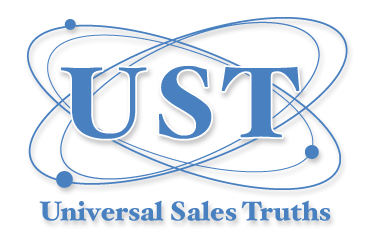The first step for anyone starting a new business is to prepare a detailed business plan. Why is that? Because as the saying goes, if you are failing to plan, you are planning to fail!
The fact of the matter is, you are running a small business. Your territory is your marketplace, and it is your responsibility to maximize the revenue potential as best you can. Running your territory is very similar to running a small business. The skills you develop over a career in sales can position you to run a small business quite effectively. The major difference is that in a small business, you are using your own money. While working in corporate America, you are using your employer’s money. As a small-business owner, you strive to maximize revenues and minimize expenses. At the end of the year, you will produce a profit-and-loss statement that will reflect the success of your business.
Similarly, as a professional sales executive, you will be evaluated on your revenue generation. In some companies, your annual expenses will be taken into consideration as well. After all, expenses are a key component of the net profit of the company you represent. Some companies have very generous expense account policies, and some are just the opposite. Keep in mind that any out-of-pocket business expenses that you incur are tax-deductible. That, of course, is for expenses that your company does not reimburse you for.
So if your annual quota is $1 million, it is incumbent upon you to put a plan in place to achieve or exceed this objective. You start by identifying the current customers and prospects that offer you the best potential to hit this objective. You would use some or all of the following criteria to determine the accounts within your territory that will provide million-dollar-plus potential.
• Competitive landscape
• Needs potential
• Relationships
• Revenue potential
• History
• Ability to pay
• Geography
Based on this assessment, you would identify the specific accounts that offer the best potential to hit your annual quota. For example, you might identify 10 accounts that each offer $100K potential or higher, or 20 accounts that each offer $50K or higher, or some other combination that gets you to $1 million. This, of course, is an oversimplification of the concept. The bottom line is, you need to take the time to identify the specific accounts that you will focus on to reach your objective. Once you identify these targeted accounts, it is time to put a detailed plan in place to generate the revenue.
This is your starting point. This plan is subject to change as your sales year progresses. For example, if you are running into extreme roadblocks in certain accounts, you will need to adjust accordingly. But the fact of the matter is, you do have a plan. It might get modified on a quarterly basis, but at least you are executing a well-thought-out business plan and not blindly wondering where your revenue will come from.
In summary, identify all the accounts within your territory that are the best fit for your product or service. Put a detailed plan in place for the targeted accounts that will get you to your annual quota. Execute this plan on a daily basis. As the year progresses, adjust your plan accordingly. Remember, if you are failing to plan, then you are planning to fail!
UNIVERSAL SALES TRUTH #4
Work your land
Proverbs 28:19-20
Work your garden- you’ll have plenty of food;
play and party-you’ll end up with an empty plate

